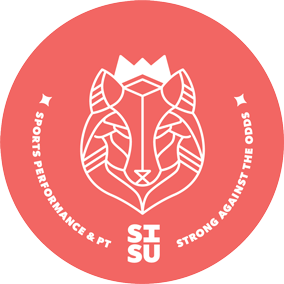Considerations for Female Athletes: Part 2
Physiologically, here are just a few things I think you need to know about being a female athlete
Hormones DO matter
I think there has been a historical trend in the fitness and healthcare industries to demonize a woman’s hormones. I’ve seen things like “balance your hormones” and “hormone resets” that imply control of our hormones is as simple as pressing a button, or getting things into “balance.”
Our hormones are constantly changing and adjusting to the needs of our bodies at any given moment in time. To use hormones to explain why women are the way they are, is dense, shallow and simply preposterous.
But here’s the deal, our hormones, as women, DO matter. They’re important to the function of all of our systems. Our hormones have been known to impact things like our musculoskeletal, cardiovascular, thermoregulatory, respiratory, metabolic systems and more. It is no wonder that researchers, clinicians and coaches are starting to consider how these things might impact other physiological parameters, including but not limited to, our response to exercise.
Let’s take oestrogen for example. Oestrogen, or more commonly known as estrogen, is the primary female sex hormone. Oestrogen plays a critical role in our health as women, particularly our skeletal muscle and bone health.
As you may have heard with the Mary Cain story, things like RED-S (relative energy deficiency in sport) can lead to a decline in oestrogen levels. A decline in oestrogen levels make it very difficult for women to develop muscle mass (aka lean mass), as well as put them at risk for injury, including but not limited to, bone stress injuries (or more commonly known as stress fractures).
The question then becomes “how do we ensure hormonal levels are “normal” for our female athletes?
I’m not convinced that there is a good answer to that question, but I can say with confidence, it starts with energy. More simply put, fueling and recovery. Which is why having a good RD (registered dietician) on your team is essential. One that won’t push you to lose weight or cut calories, but one that will help you find what energy you need to foster your performance demands. Because, it just so happens that dieting can increase the production of another hormone: cortisol. (Reference)
Periods matter
Along the same lines as above, a woman’s period matters to her health and performance as an athlete. If you had a late start to your period (guidelines say later than 16 years old) or lost your period for any reason other than pregnancy, it might be worth taking a look as to why that might be for you as an individual.
While variation in menstruation is quite common, as an athlete, your period can actually be an important indicator of your health during menstruating ages.
A loss of your period due to imbalances in your energy systems, can lead to low production of oestrogen. Barring any medically diagnosed menstrual dysfunction or disorder, periods play a pivotal role in the health of a female athlete. And by pivotal, I mean seriously pivotal.
A late start to a young girls’ period can lead to reduced bone health for her lifetime and a risk of early mortality. A loss to a woman’s period, can do the same. Again, this comes back to a conversation around food, healthy performance habits, recovery and simply a general understanding of a woman’s health. These sorts of things occur when a person’s body is in starvation mode and shutting down vital functions as a way to help protect and conserve precious energy.
Age-related physiological changes are very real
As women age, there is a wide world of unknowns. Generally speaking, research on women is not great beyond menstruating years (and even IN menstruating years!). The research gap is problematic, particularly towards offering masters level athletes solutions to their problems. And when it comes to menopause, forget it.
The general recommendations right now are this: “Exercise!” but also “Sorry, we don’t really know what to do for your sleep struggles, weight gain, hot flashes, bone density, fatigue, or tendon problems.”
But while there are a lot of unanswered questions for women as we age, we seem to have a general consensus, that being: high intensity training is both helpful and protective towards bone density, symptom reduction and general health (Reference). We also know that heavy resistance training is safe for post-menopausal women (Reference).
Cheers,
Ellie
**With all of this in mind, it is important to know that you don’t need to go through any of this alone. If you’re looking for a PLAN to get you back to where you want to be, reach out. It is what I do best.
Sisu Sports Performance & PT is accepting new clients!! Feel free to send me an email or schedule an appointment today!






